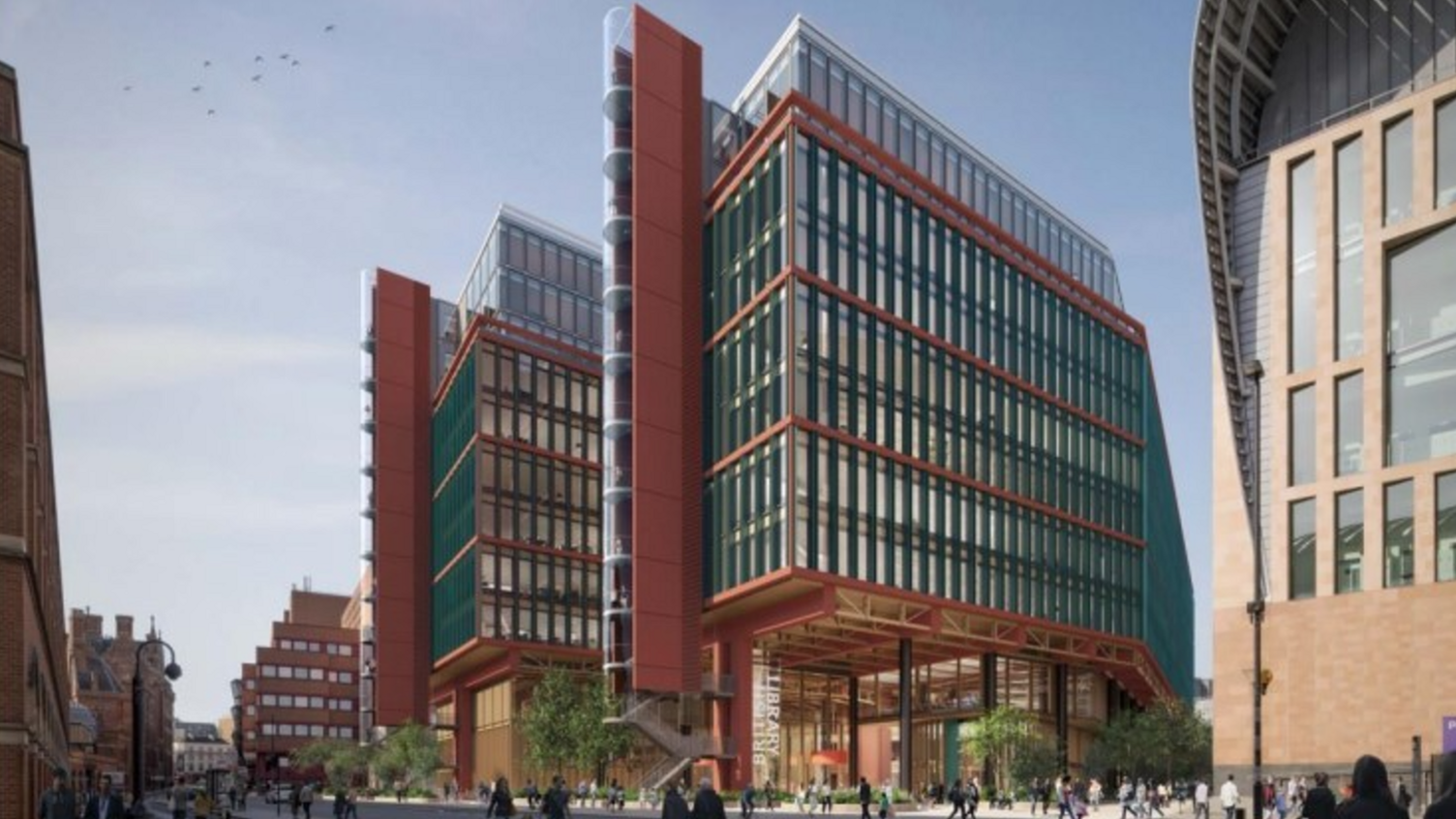British Library installs solar technology on roof
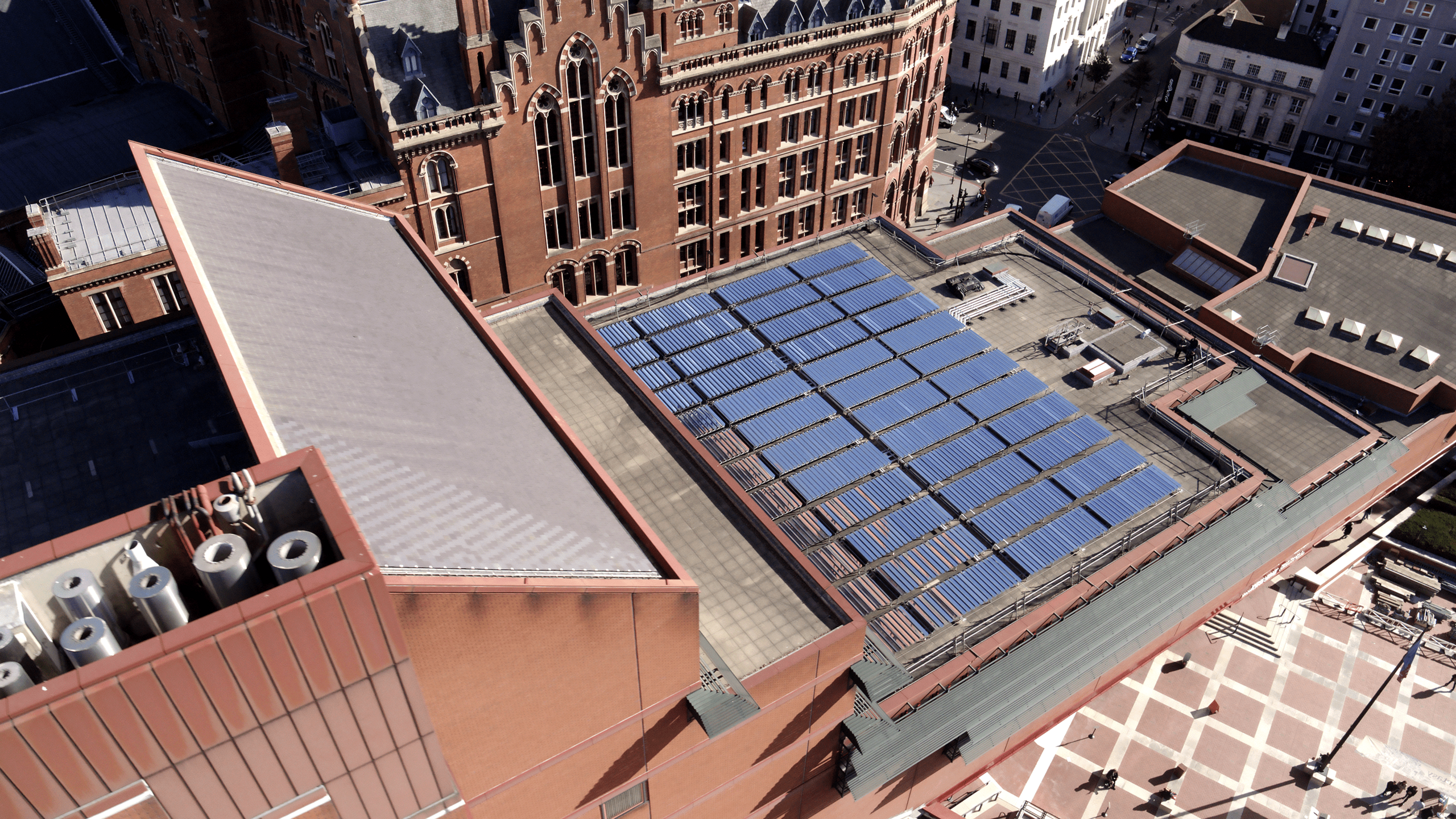
The library's heating and hot water fuelled by the technology
- Published
The British Library has installed solar technology across its roof, which it hopes will reduce the building’s CO2 emissions by 55 tonnes a year.
The energy generated will be used for heating and hot water as well as the maintenance of precise temperature and humidity conditions needed to preserve its national collection.
Naked Energy said the installation, which comprises of 950 solar collectors across the library’s roof, was "the UK’s largest solar heat project".
Patrick Dixon, director of estates and construction at the British Library, said the £1.5m project was part of the organisation's "commitment to environmental action".
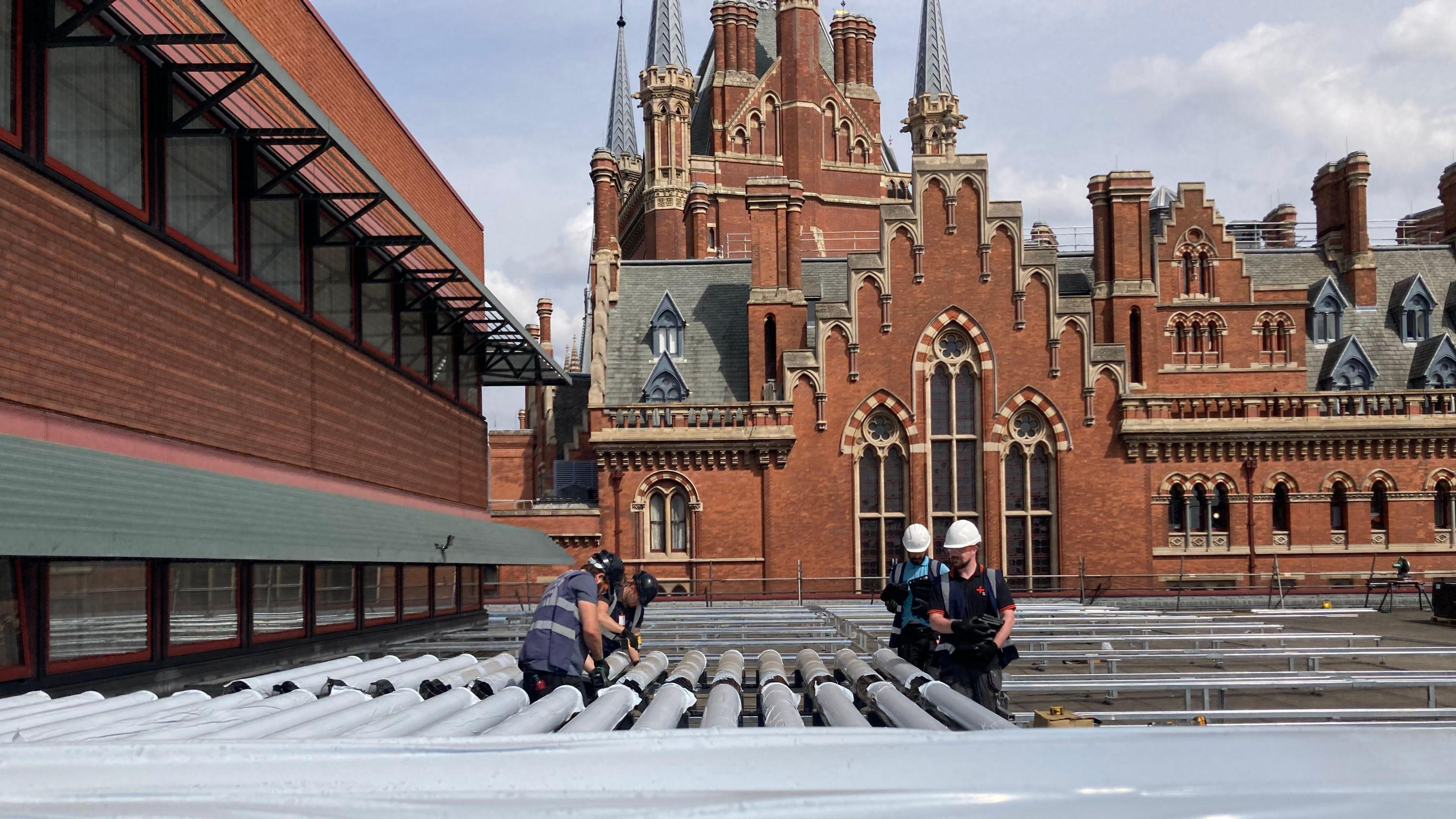
The project is expected to reduce the building’s CO2 emissions by 55 tonnes a year
The technology, supplied by Naked Energy, was funded by The Public Sector Decarbonisation Scheme, run by the Department for Energy Security and Net Zero.
Mr Dixon said he was "delighted" to have benefitted from the scheme.
'Immense undertaking'
The project is expected to reduce the building’s CO2 emissions by 55 tonnes and generate 216 MWh of energy annually – the equivalent to powering and heating a community centre or swimming pool for a year.
The solar collectors will cover 712 sq m ( 7,663 sq ft) of the roof.
Naked Energy has said its solar collectors are "revolutionary" as they convert the sun's energy into heat and power - normally solar collectors only generate heat.
Solar collectors differ from solar panels which only generate electricity.
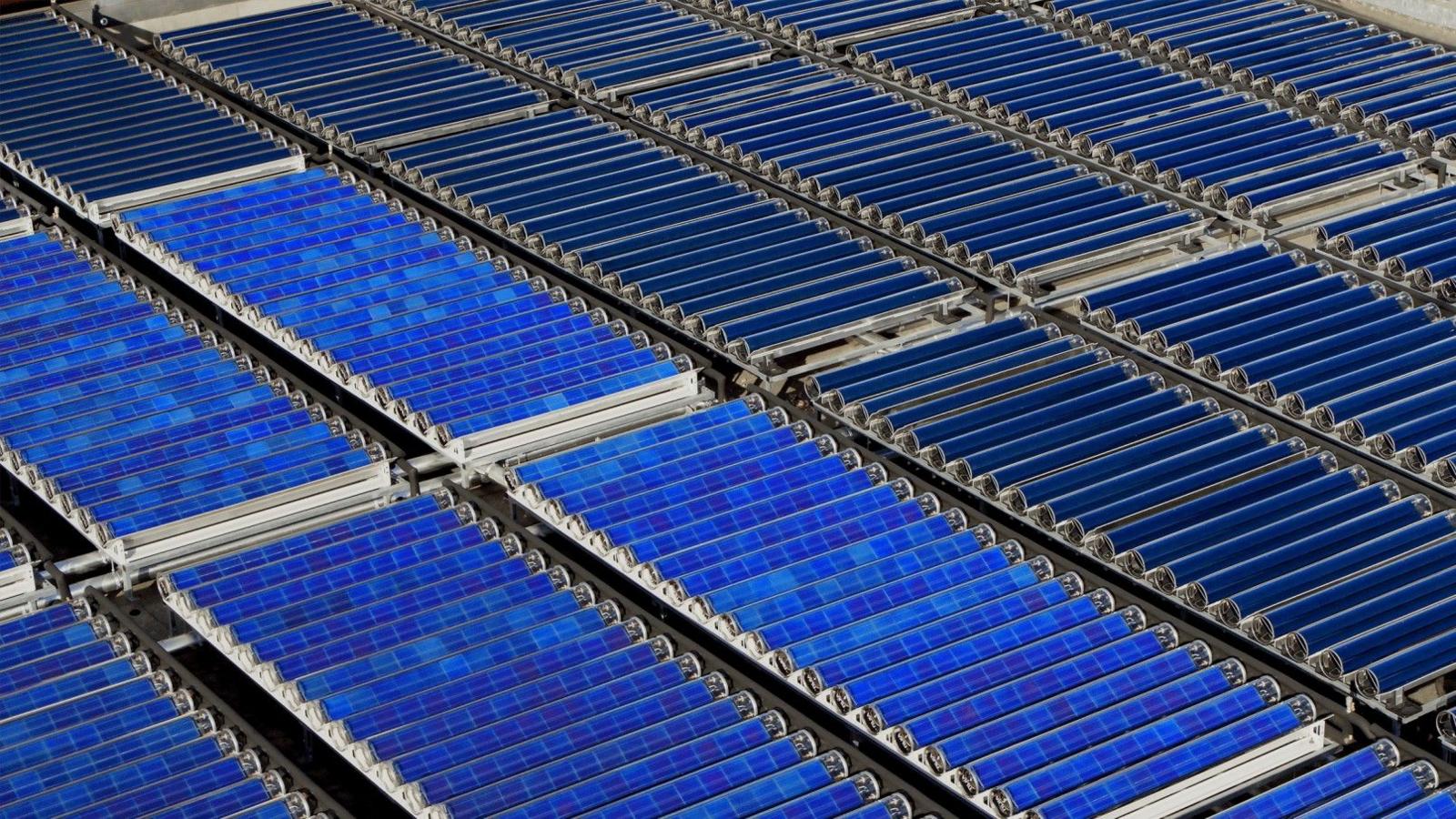
The low-profile solar collectors are not visible from street level
Christophe Williams, founder and CEO of Naked Energy described the project as an "immense undertaking".
“It’s an honour to partner with such an iconic British institution and be a part of their journey to meet their net zero goals," he said.
“We hope that this project can serve as a catalyst to inspire others in the public sector to join the energy transition and move away from fossil fuels once and for all."
Jon Benford, managing director at CBRE Global Workplace Solutions, which delivered the project, said work on the Grade I-listed English Heritage building came with "unique challenges".
"We’re proud of the role this project will play in both preserving the past and protecting the future," he added.
Listen to the best of BBC Radio London on Sounds and follow BBC London on Facebook, external, X, external and Instagram, external. Send your story ideas to hello.bbclondon@bbc.co.uk, external
Related topics
- Published15 January 2024
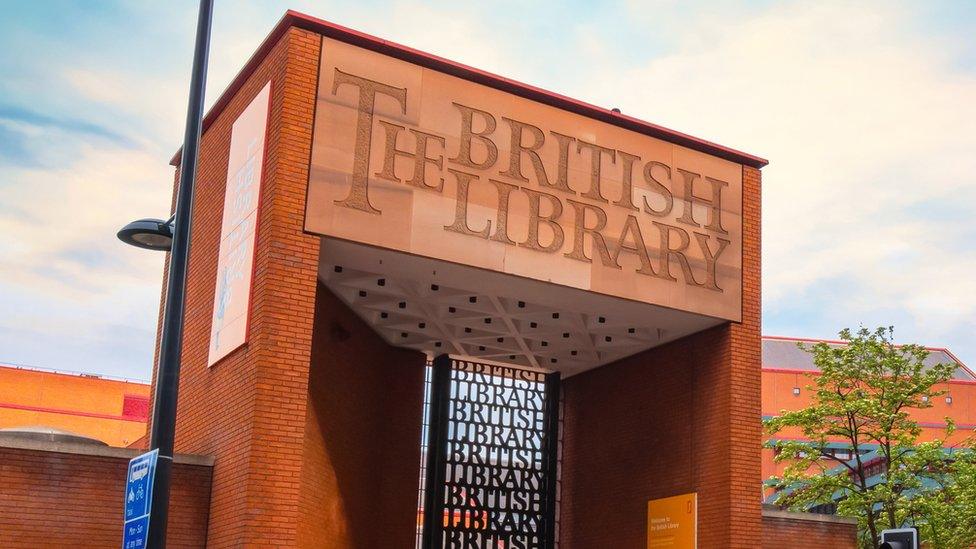
- Published31 January 2023
